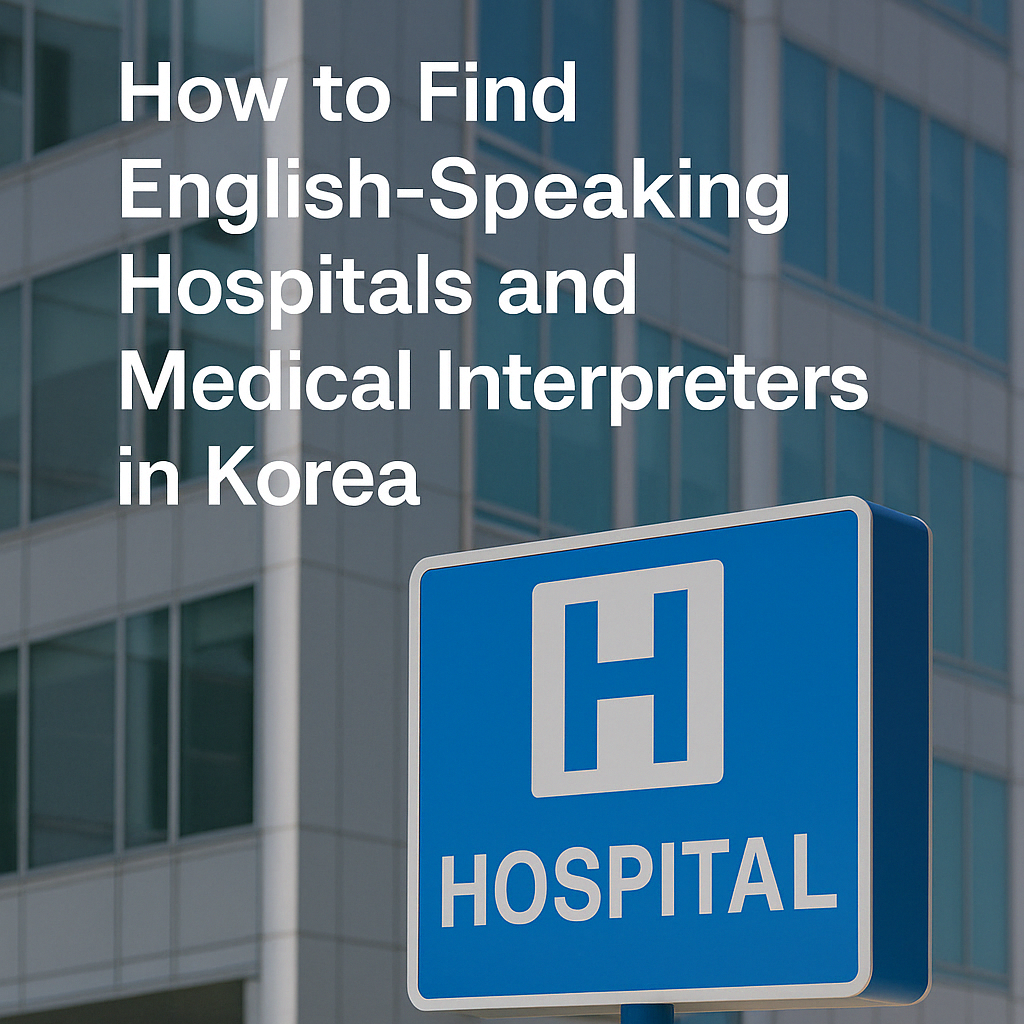Navigating healthcare in a foreign country can be challenging—especially when you don’t speak the language. Fortunately, Korea offers various ways for foreigners to access medical care in English. This guide will help you locate English-speaking hospitals and access interpretation services with confidence.
1. English-Speaking Hospitals in Korea
Major hospitals in Korea often have international clinics with English-speaking doctors, nurses, or coordinators. These clinics cater to expats, travelers, and foreign patients.
Recommended hospitals with English-speaking staff:
- Severance Hospital (Sinchon, Seoul) – International Health Care Center
- Asan Medical Center (Seoul) – Global Healthcare Center
- Samsung Medical Center (Seoul) – Foreign Patient Center
- Seoul National University Hospital (SNUH) – International Healthcare Center
Most of these hospitals have dedicated English websites with appointment information and email contact.
2. Finding Smaller Clinics That Speak English
While large hospitals offer structured international services, you may need a local clinic for basic needs (e.g., cold, dermatology, dental).
Tips to find English-speaking clinics:
- Use Google Maps with keywords like: “English-speaking clinic near me”
- Search on expat forums (e.g., Reddit, Facebook groups: “Every Expat in Korea”)
- Apps like AirDoc, Seoul Global Center, or Korea4Expats sometimes list user-reviewed clinics
You can also ask hotel front desks or coworking spaces—they often have trusted clinic info for foreigners.
3. Accessing Medical Interpretation Services
If you visit a hospital or clinic without English staff, you can still request interpretation support.
Options include:
- Korea Medical Interpretation Services: 24/7 free telephone-based service provided by the government
- Seoul Global Center Medical Help Line: Offers phone and on-site interpreter services
- Hospital internal interpretation: Some clinics provide volunteer or staff interpreters for major languages
Interpretation is most accessible in Seoul, Busan, and major cities, but some regional hospitals offer it on request.
4. Bonus Tools to Bridge the Language Gap
- Papago or Google Translate: Install with offline mode just in case
- Pre-printed Korean phrases for symptoms: “I have a fever.” “I have allergies.”
- Medical translator apps like Medibabble (iOS)
Final Thoughts
Don’t let language barriers keep you from getting the care you need.
Korea’s medical system is increasingly accommodating to foreign patients, especially in urban centers.
With the right resources, finding English-speaking hospitals and interpreters is not only possible—it’s easier than you think.
